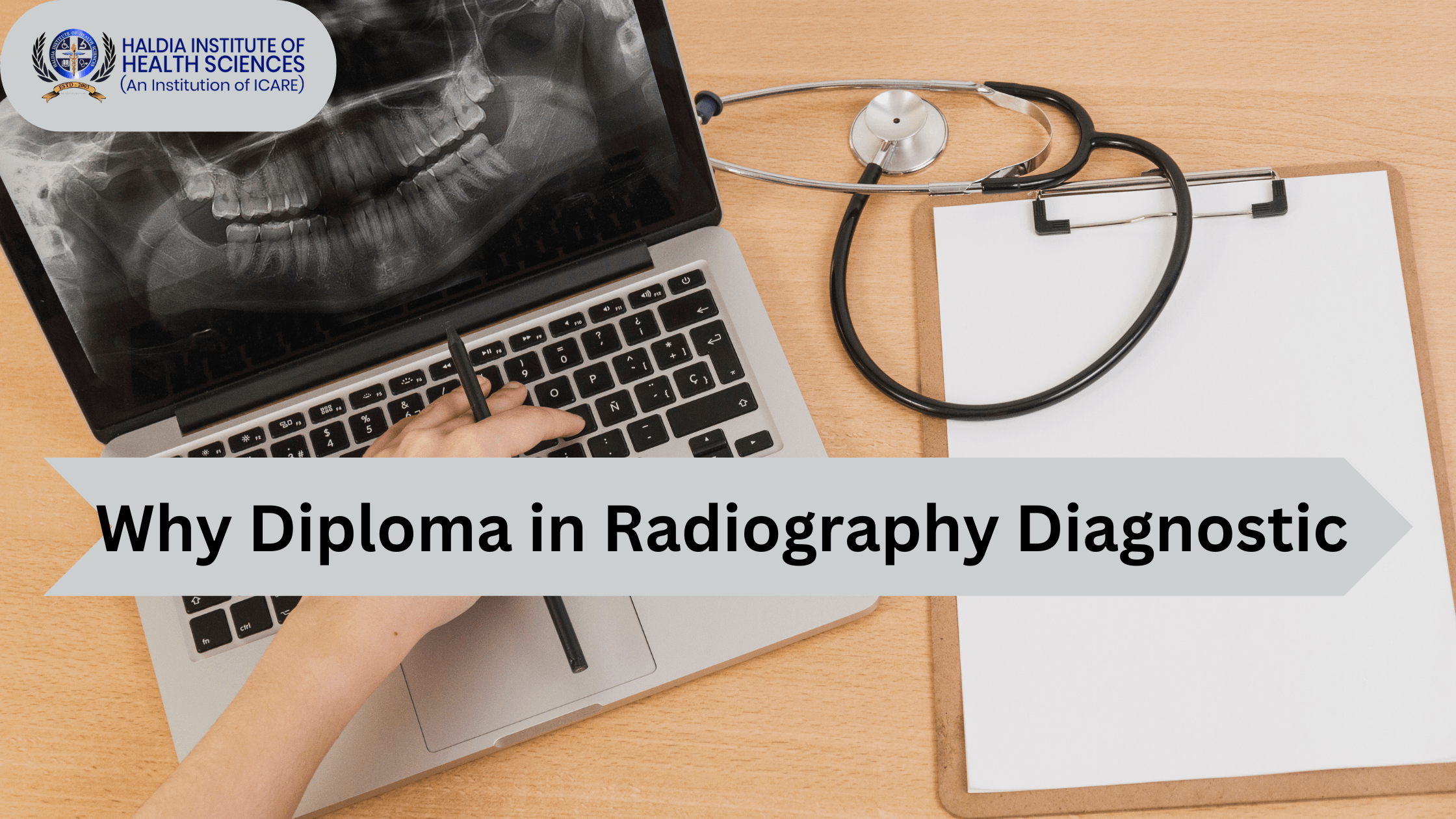Latest Notifications

Blog

Why Diploma in Radiography Diagnostic
A Diploma in Radiography (Diagnostic) is a specialized program that trains individuals to become radiologic technologists or radiographers. These healthcare professionals play a crucial role in the medical field by operating imaging equipment to create diagnostic images of the human body. Here are some reasons why one might pursue a Diploma in Radiography (Diagnostic):
Essential Healthcare Role: Radiographers are essential members of the healthcare team. They work closely with physicians and other medical professionals to produce high-quality diagnostic images that help diagnose and monitor various medical conditions.
Job Opportunities: The demand for radiologic technologists is expected to remain strong. Healthcare facilities such as hospitals, clinics, and diagnostic imaging centers require skilled radiographers to perform imaging procedures.
Shorter Duration: A diploma program in radiography is typically shorter in duration compared to a bachelor's degree. This means you can enter the workforce faster and start your career sooner.
Entry-Level Position: A Diploma in Radiography is often sufficient for entry-level positions in the field. With experience, you can advance in your career, pursue additional certifications, or even consider further education in radiologic sciences if desired.
Hands-On Training: Radiography programs provide hands-on training, allowing students to gain practical experience in operating imaging equipment and working with patients. This practical experience is valuable for those who prefer a more hands-on approach to healthcare.
Technological Advancements: The field of radiography continually evolves with advancements in imaging technology. As a radiographer, you'll have the opportunity to work with state-of-the-art equipment and stay current with emerging technologies.
Patient Interaction: Radiographers often work closely with patients, providing care and reassurance during imaging procedures. This interaction allows you to make a positive impact on patients' experiences and well-being.
Opportunities for Specialization: Over time, you can specialize in various areas of radiography, such as computed tomography (CT), magnetic resonance imaging (MRI), or interventional radiography, broadening your skill set and career options.
Overall, a Diploma in Radiography (Diagnostic) in haldia institute of health sciences is an excellent choice for individuals interested in healthcare, technology, and patient care. It offers a rewarding and stable career with opportunities for growth and specialization.

